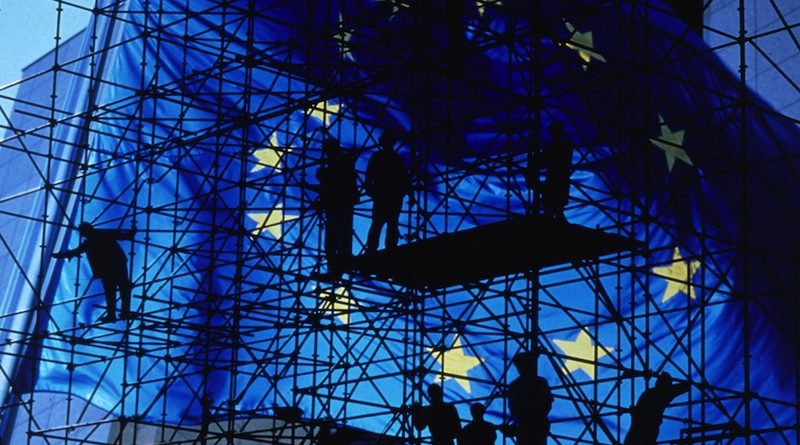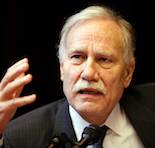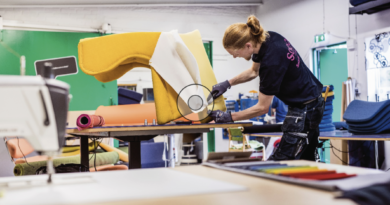
Europe : gear up !
Globalisation, Brexit, rise of populisms, environmental change… News shows us every day a growing truth on the old continent: this century’s stakes are inherently European. European, because they no longer can be understood with a sole national grid. European, as they demand a collective response from every Member State.
With the European elections coming, this assessment compels us to challenge our views.
Realising how weak we are individually is the first step leading to become collectively strong, the sole viable starting point for tomorrow’s policies. Europe is part of our day- to-day life.
Globalisation has shaken up the traditional logic of Nation-States, in first place sovereignty, and has made issues increasingly more multidimensional, cross-topical and cross-national; leaving the Westphalian states in a difficult situation, poorly equipped to face and respond to these changes.
Some see it as a crisis, the end of the old world: I hear them. But let’s not forget that there is no need to be scared:
the European Union has always proceeded and taken steps further with crisis.
Born from the ashes of the deadliest conflicts in the history of humanity, it has gradually strengthened cooperation among Nations to address the challenges of our time. The latest example is undoubtedly the Banking Union, a direct result of the 2007 financial crisis. When wisely managed, crisis have been the fuel, the driving force of European integration. And it is this energy to convert crises into opportunities that the Union imperatively needs for its future and its citizens.
The paradigm shift is real: the EU should no longer be considered as an achievement, but the starting point of our shared ambitions and the framework for joint actions.
In that regard, the European institutions deserve, as such, to be reformed.
A stronger Parliament negotiating on an equal footing with the Council, with a real decision-making power over the budget and legislative initiative (essential prerogatives of any Parliament, for that matter), the end of the unanimity rule in the Council, the election of the President of the European Commission by direct universal suffrage would all be factors likely to make the EU closer to its citizens and more effective.
An overhaul of the institutional mechanics would provide the Union with the opportunity to be better prepared for the challenges ahead. These are two sides of the same coin: renovating the European House to better withstand the winds of globalisation. And these winds are numerous. Climate change in the first place : it can only be addressed at the Union level both to implement ambitious policies on its territory, and to become a front runner on the international scene. The same goes for topics such as migration, taxation, digital, defence, terrorism and cybersecurity, social issues… So much remains to be built.
European industrial policy is a striking example of these challenges. The Union, as everyone knows, has two major levers of intervention: regulation and budget.
If European competition rules were beneficial to citizens in the second half of the twentieth century, they no longer correspond to the reality of the world, and may even hinder our global competitiveness.
Facing an intensified international competition and the emergence of global giants, Europe must arm itself. We need to encourage the emergence of European champions, like Airbus, to establish reciprocity in market access, and even to set up a “European preference” in our strategic sectors. Our competitors have already put such instruments in place. Why not us?
The issue of environmental dumping of some trading partners, with lower environmental standards, must also be addressed. At the same time, it is essential that the European budget supports these transitions by investing massively, especially in infrastructures and innovation. Batteries for tomorrow’s mobility, space, artificial intelligence to just name a few will be the leading sectors of the world economy.
Hard to invest though, with a European budget equivalent to 1% of its GDP. Nevertheless, Europe remains highly innovative, contrary to what can be heard (the European Patent Offices files half of patents in the world).
But the fragmentation of the single market prevents our start-ups from reaching a critical size on global markets and are too often bought by our foreign competitors. In short, time for Europeans to gear up has come.
Finally, there is one aspect everyone needs to keep in mind: the Europe of values. It is easily forgotten, but Europe is one of the last and rare regions in the world that guarantees its citizens democracy, human rights, rule of law and peace. This should never be taken for granted but rather to be continuously reaffirmed and protected.
It is indispensable that the Union preserves and strengthens this common base not an easy task, even within its own borders because this is where the European identity really lies.




